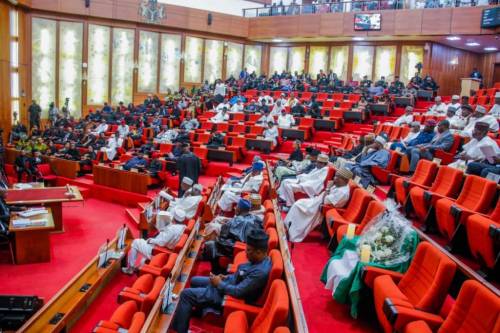[ad_1]
The Nigerian Senate, on Wednesday, passed a bill to establish the National Social Security Commission.
The piece of legislation seeks to put in place a National Social Security protection funding to cater for the needs of the unemployed, aged and underage children below 18 years, from broken marriages.
Also covered in the bill are dependents left behind after the death of the family’s breadwinner.
The passage of the bill followed the consideration of a report by the Committee on Establishment and Public Service Matters, a statement by Dr. Ezrel Tabiowo, Special Assistant (Press) to the Senate President said on Wednesday.
Chairman of the Committee, Ibrahim Shekarau (NNPP – Kano Central), in his presentation, said the bill seeks to provide the Legal and Institutional framework for the establishment of the National Social Security Commission for the regulation, management and administration of various social services and benefits to Nigerian citizens.
“Ultimately, the Bill seeks to provide a comprehensive Legal and Governance framework for the proper administration and management of all-inclusive, integrated, preventive, promotive and transformative National Social Security regime that provides flexible sustainable periodic social benefits and grants to eligible indigent Nigerian Citizens that are within the scope of the Social Security (Minimum standards) Convention, 1952 (NO 102) of the International Labor Organization (ILO) and particularly Contingencies arising therefrom,” he said.
The lawmaker explained further that, “the proposed Social Security Commission under this Bill shall provide indigent Nigerians Citizens with comprehensive preventive and/or curative Medicare, from sicknesses resulting from any morbid condition of whatever cause.”
“Specifically, the Commission when establish by the leave of this Senate shall provide a well-structured impactful, and sustainable social interventions to eligible unemployed Nigerians, old-aged Nigerians, underage children below 18 years resulting from broken marriages and survivors resulting from loss of family’s breadwinner,” he added.
The bill was passed by the upper chamber after a clause-by-clause consideration by the Committee of the Whole.
[ad_2]


















